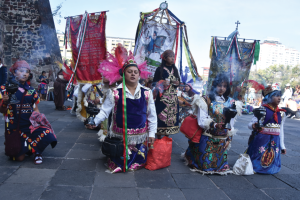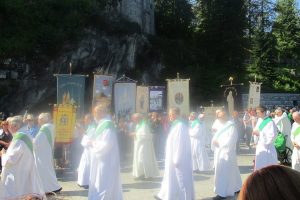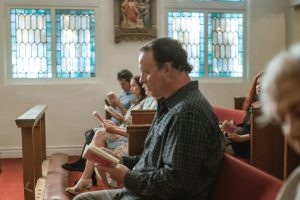The mission of Catholic Newman Centers has changed over more than 100 years.
In the 1800s, Blessed John Henry Newman wrote that “religious truth is not only a portion, but a condition of general knowledge.” Catholics who attended non-Catholic universities are likely to have encountered one of the hundreds of centers inspired by the 19th-century Catholic intellectual.
The “Newman Movement” in the United States began in 1883 at the University of Wisconsin to help Catholics live their faith on campus amid perceived anti-Catholicism. Ten years later, the University of Pennsylvania started a Newman Club, taking on the convert’s name three years after his death.
In 1908, the Catholic clubs began an association which eventually became the National Newman Club Federation. From the beginning of World War I until 1969, the Newman effort was “characterized by a defensive and even hostile attitude on the part of Catholics students and their chaplains toward the academic world,” according the 1985 U.S. bishop’s pastoral, “Empowered by the Spirit: Campus Ministry Faces the Future.”
During that time, many felt a lack of support and connection with the hierarchy. Things changed significantly with the influence of the Second Vatican Council. The church began to support campus ministry, though is seems misunderstandings between the campus efforts, parishes and diocesan leadership continue. The U.S. bishops placed Newman Centers under the care of the Catholic Campus Ministry Association.
“Campus ministry is an integral part of the church’s mission to the world and must be seen in that light,” the bishops said in their pastoral. Through the years, Catholic campus ministries have improved their relationships with the academic community.
Newman Centers have been places for ecumenical and interfaith dialogs and rallying posts for social justice efforts. Back in 1985, the bishops recognized “a remarkable diversity of legitimate styles and approaches” to match “unique situations at particular colleges and universities.”
“The church is big enough for all of us,” says Claretian Father Tom McGann, director of the O’Reilly Catholic Center in Springfield, Missouri. “You’re going to find students along the whole spectrum of the faith journey. We can minister to them all. Everyone is welcomed.”
This article is a web-only sidebar that accompanies “New man on campus: A new approach to campus ministry,” which appeared in the February 2012 issue of U.S. Catholic (Vol. 77, No. 2, pages 27-31).











Add comment